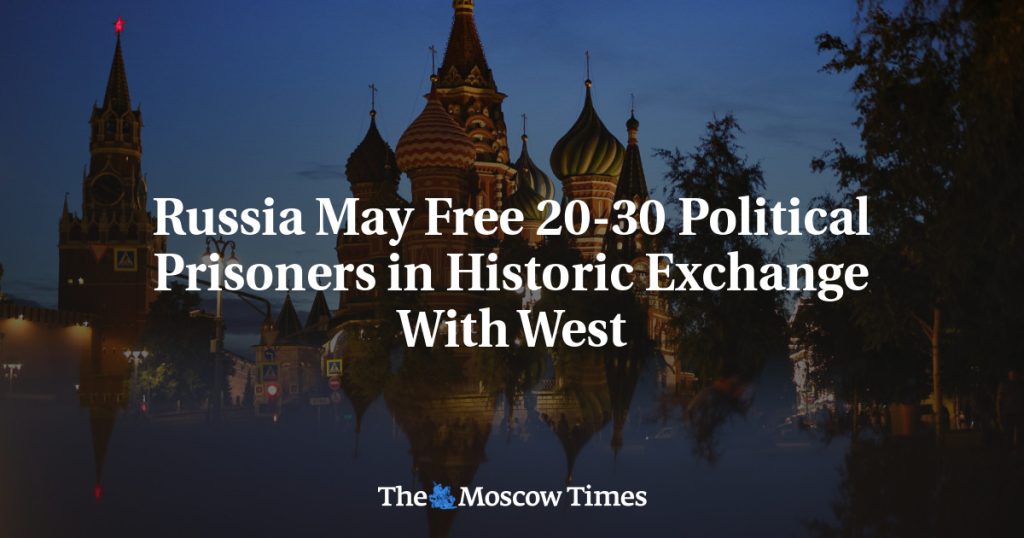Russia is reportedly preparing to release between 20 and 30 political prisoners and journalists in an exchange with the United States and Germany, marking the largest swap since the end of the Cold War. Previous reports suggested that up to 10 high-profile prisoners were being readied for the rumored exchange. The source familiar with the planning estimated that Moscow would extradite around 20 to 30 individuals to the West, including those linked to Alexei Navalny’s organizations, Russian citizens critical of the war in Ukraine, and U.S. citizens.
Among the prisoners whose whereabouts have become unknown are activists Vladimir Kara-Murza, Oleg Orlov, and Lilia Chanysheva, as well as former Moscow city councilman Ilya Yashin. The list of individuals being readied for exchange reportedly includes prominent dissidents such as Kara-Murza and Yashin, as well as U.S. journalist Evan Gershkovich. Efforts have been made to keep information about the exchange secret within Russia until the last moment, with special aircraft reportedly transporting political prisoners from remote regions to maintain secrecy.
While the specifics of the timing for the exchange were not provided, speculation has been growing about a major prisoner exchange involving the U.S., Germany, Russia, and Belarus. Recent reports from Slovenia suggested that an exchange was expected in the coming hours, shortly after a Russian couple was sentenced to prison on espionage charges in Ljubljana but then unexpectedly ordered deported. Information about four Russians imprisoned in the U.S. disappeared from the Federal Bureau of Inmates database, further fueling rumors of an impending exchange.
The White House, when questioned about the potential swap, expressed commitment to returning detained Americans in Russia but refrained from providing specific details. The last exchange between Russia and the U.S. occurred in December 2022 when American basketball star Brittney Griner was freed for arms dealer Viktor Bout. President Joe Biden expressed regret that former U.S. Marine Paul Whelan, jailed in 2018 on espionage charges, could not be included in the previous exchange. If confirmed, the upcoming swap would be the largest since 2010, when Washington and Moscow exchanged 10 Russian secret agents for four Russian nationals.
Overall, the situation surrounding the potential prisoner exchange remains shrouded in secrecy and speculation, with reports indicating that political prisoners and journalists are being readied for release and transportation to undisclosed locations. The involvement of countries such as the United States, Germany, Russia, and Belarus in the exchange further adds to the complexity of the situation. The possible release of individuals critical of the Russian government, as well as the disappearance of information about Russians imprisoned in the U.S., has generated significant interest and raised questions about the motives and implications of the upcoming swap.















